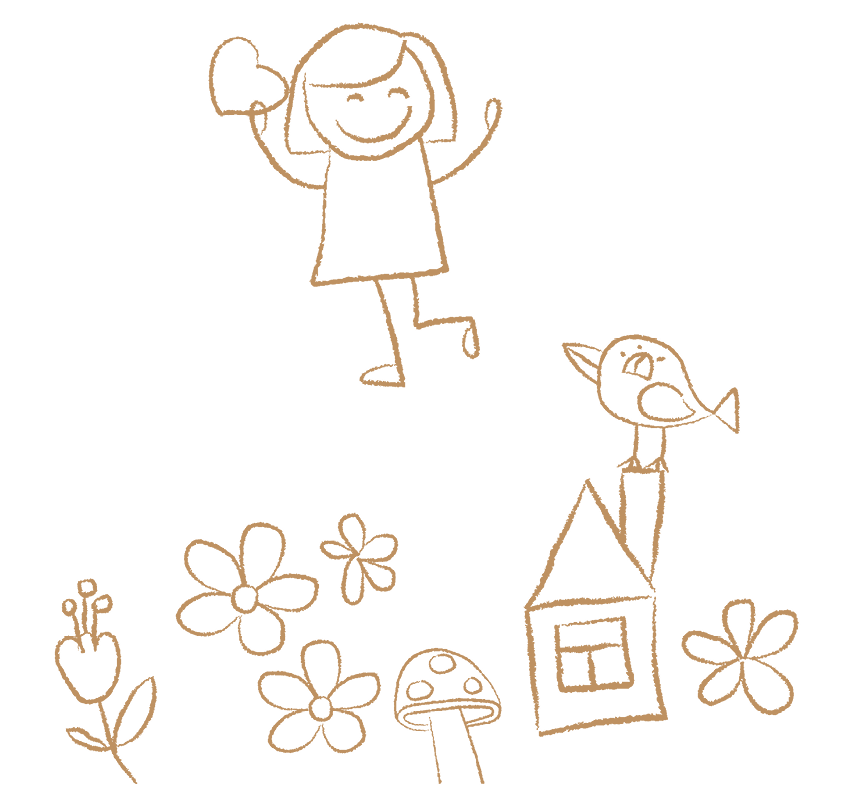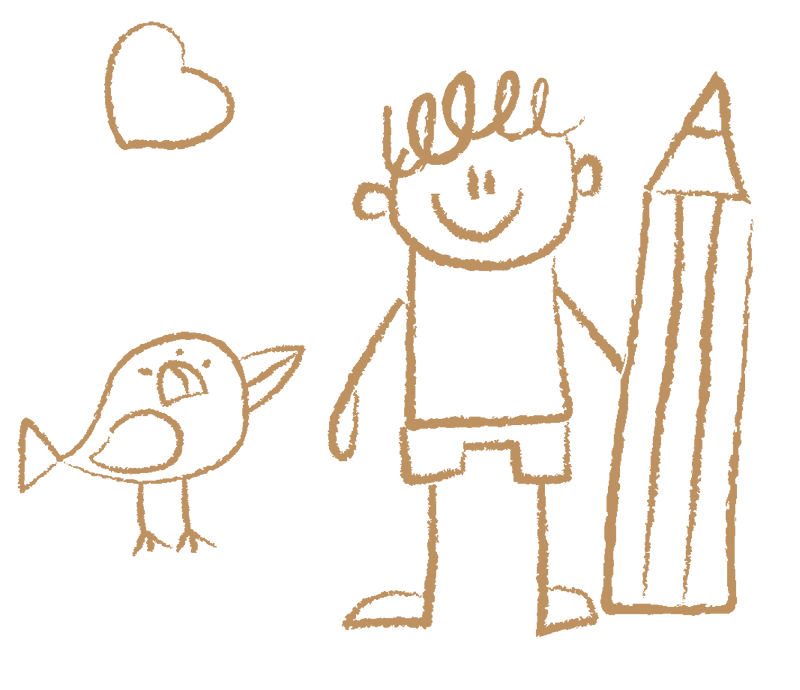Interviewed and written by Zhang Ling-hui
Translated by Wu Hsiao-ting
Graphics by Qiu Yu-sheng
“I’m going away to make some money and won’t be back for a few days,” my mom said, before putting 500 Taiwanese dollars into my hand. After that, she often disappeared for long periods from my life—even though I was only a third grader. Without her, I was all on my own.
Mom has been the only family I’ve had for as long as I can remember. Before I entered the third grade, I followed her everywhere selling Taiwanese-style fried chicken. We moved a lot back then, but since I was used to such a life, I was fine with it.
Mom never doted on me, but neither did she leave me untended. She kept me fed and sheltered. I had a normal elementary school life, with teachers and classmates I liked. I thought things would carry on like that until I was old enough to become independent. Little did I know that it was not to be, and that what I took for granted would be gone in an instant.
One day, a customer who patronized Mom’s stall asked to use the toilet. When he was done and had come out, he walked to the sink to wash his hands. The sink was right next to the deep fryer. As soon as he turned on the faucet, the water splashed out of the sink, causing flames to lick out from the deep fryer. The customer and Mom couldn’t dodge the flames in time and were both badly burned.
The fire that followed destroyed the food stall that had provided us with our livelihood. Mom was devastated, both physically and emotionally, and underwent a dramatic change of personality. She began to get drunk and even used violence against me. We were not insured against fires or other accidents, so Mom incurred a large debt overnight. We didn’t have any savings, so we took to hiding from our creditors.
Later, she rented me a small studio apartment located above a convenience store; she said I’d be safer that way, with people downstairs 24 hours a day. After transferring me to a local school, Mom and I took a train and then a bus before we arrived at a busy temple. I thought we were there to visit the temple, but Mom took me to a lottery store nearby instead. She exchanged a few words with the store owner, then turned to me and said, “From now on, whenever you have a day off from school, you need to travel here on your own to help the boss sell lottery tickets. If you don’t, you won’t have anything to eat.”
When we were back at the studio apartment, Mom told me, “I’m going away to make some money, and won’t be back for a few days.” Then she gave me 500 Taiwanese dollars (US$17) and left. From then on, she was often away for long periods and only returned home occasionally. I realized later she was doing that to avoid our creditors.
Thus began life on my own. I lived alone. I walked to school alone. I took the train alone and then the bus alone to go sell lottery tickets. I was forced to learn to keep track of the money I had left. In fact, I had to manage everything alone.
Maybe because I was tall and strong and didn’t have the kind of baby face other children my age had, no one ever questioned why a young kid like me was left on my own. For a long time, I lived all alone just like that.

My pay
On the days I worked, I earned 800 Taiwanese dollars (US$27) for every hundred lottery tickets I sold. At first, I hated having to earn my own living. I thought unhappily to myself, “Why couldn’t I just sleep in on the weekends or holidays like my classmates? Why do I have to work?” But my mindset changed one day when I received my usual pay of 800 Taiwanese dollars—suddenly I was filled with a fulfilling sense of security I had never experienced before.
“With these 800 dollars, I can go a week without worrying about going hungry,” I told myself. “My classmates make no money at all sleeping at home, but I get a chance to earn my keep as long as I’m willing to get up early and go to work. Isn’t that something?”
You see? Often a shift of mindset is all it takes.
After I moved up to the fourth grade, I continued peddling lottery tickets in front of the temple, where there was a lot of foot traffic. One day, when I was hawking tickets the best I could before the temple as usual, a classmate saw me.
I was filled with dread when I went to school the following Monday. I was worried all eyes would be on me when I walked into the classroom. To my immense relief, nothing like that happened. No one paid me any mind. Everyone just went on minding their own business, like any other day. I was as happy as could be.
But some things did change from that day onward. I began getting larger portions of food during school lunch. My homeroom teacher took to packing school lunch leftovers for me to take home. My classmates also began to interact with me more often.
I had been in the habit of keeping my distance at school. I didn’t want to become too invested in my relationships with my teachers or classmates because I didn’t know when Mom would uproot me again and move me to another place without giving me time to properly say goodbye to them. It wasn’t a good feeling to be cut abruptly from the ties you’d developed with others, so I just avoided making those ties.
It never occurred to me that when others learned about my circumstances, it would result in my being better fed and clothed. Aside from those school lunch leftovers, my teachers applied for scholarships for the disadvantaged on my behalf and let me use sample textbooks. They tried to find ways to help me cut my expenses. It was also because of them that a group of strangers walked into my life.
Who can you trust?
“Hello, I’m a Tzu Chi volunteer,” a woman said to me. “May I have a word with you?”
“What is a ‘Tzu Chi volunteer’”? I wondered. “Why does she want to talk to me? Is she coming to learn if I need help?”
I figured I was managing quite well by myself and didn’t need anyone’s help. But to be honest, the real reason I didn’t want help was because I had a general distrust of others. I couldn’t even count on my own mom—who else could I really trust?
But whether I liked it or not at the time, these Tzu Chi volunteers had entered my life, just like that. They first showed up during my sixth-grade summer vacation, and they are still with me, even though I’m now a graduate school student.
Since Mom wasn’t completely absent from my life, they met her at the very start. But Mom was never at home when they visited me afterwards. I always told them she was still at work. Since they visited me just once a month, they probably didn’t find it too unusual.
Things went on like this until I was in my first year in junior high school. One day, I injured my leg during a physical education class—a new polyurethane running track was being installed at school, and I missed my step on the uneven ground. The injury made me unable to get around by myself.
“How could you get injured?” Mom said when I told her what had happened. “Is it really so bad you can’t take care of yourself?” It wasn’t care and concern I heard in her voice, but suspicion and reproach.
Mom did eventually return to check on me, but it was my Tzu Chi moms—that’s what I ended up calling the volunteers—who showed genuine care and concern. They were really worried about me. Every time they visited, they reminded me over and over again how to care for myself and of things I needed to pay attention to.
Gradually, I began to feel what it was like to be loved and cherished.
It was during this time they discovered that Mom was often away from home. The law only stipulated that children under six years old couldn’t be left unattended, so my living alone was not illegal. Still, Mama Shu-lan told me, “You must try to find a way to live with your mom—only then will home feel like home.”
Mama Meng-jun was on a mission of “getting me to live with my mom.” She often asked me if I wanted Mom to move back in with me. At first, I tried to evade such questions. I knew she meant well, but I didn’t want to live with Mom. I preferred living on my own.
I rarely said bad things about Mom to others, maybe out of a fear of losing her completely. She was my mom after all. Mama Meng-jun must have sensed something was up, but she never pushed too hard. I liked it that way; she put my mind at ease. Eventually I came clean and told her I didn’t want to live with Mom because I had suffered emotional abuse from her for a long time.

Forced to move
Having to fend for myself made me sensitive and guarded.
In the very beginning, when Mama Meng-jun tried to teach me how to do housework, I bristled and blurted out: “Stay out of my business!”
Thinking back on it now, I realize how childish I was. Thankfully, my Tzu Chi moms weren’t driven away by my insolence, but continued to guide me with patience. It’s a good thing; otherwise I probably would never have gotten to experience the feeling of being loved.
Even though the volunteers were attentive to all my needs and had my best interest at heart, it took me a long time to convince myself to let down my guard. I finally realized the love they were giving me was unconditional, with no strings attached. It was the kind of love in which I didn’t have to worry about getting hurt.
I lived in that small studio apartment until my freshman year in college. The convenience store downstairs was closing down, and the new tenant wanted to rent the entire building, so I had no choice but to move. I was given very short notice to find a new place to live.
My eviction really threw me for a loop. I had no idea where to go. I also worried whether I’d be able to afford my future rent—that is, if it would turn out to be higher than what I was paying. All of a sudden, all kinds of problems surfaced in my mind, and getting a place to live became all I could think about.
It was then I thought of my Tzu Chi moms. When I told Mama Li-jun about my predicament, she wasted no time relaying the news to Mama Shu-lan and Mama Meng-jun. Using their connections, they found me a new home in no time. It was a bungalow that felt more like a home. In addition, it was located near a bus stop, with buses running to and from my school.
They helped me move, too. Though I didn’t have a lot of stuff, it would have been a hard job without their help.
I didn’t want them to spend any money improving my new home, but Mama Meng-jun insisted on having a screen door put in so that I could get better airflow without worrying about bugs or mosquitoes. And that wasn’t the only improvement they made to my new place. Whenever they found the house lacking in something, they took the initiative to improve it without my ever asking. The care they gave me far exceeded what one could expect from family, but still they kept giving.
My new place might have been shabbier than the studio apartment which I had called home for nearly nine years, and it was farther away from the city center, but at least it was more spacious.
I continued selling lottery tickets during my free time while going to school. I only stopped when, with a teacher’s recommendation, I got a part-time job at the school office in the second term of my freshman year.

A ticket seller’s advice
I remember a day waiting for a train to take me to work, back when I was still selling lottery tickets. I looked at the booking clerk sitting in the ticket office of the train station and was suddenly struck by a thought: “I’m at the mercy of the elements, selling lottery tickets outdoors, but the ticket seller has no such concerns. It doesn’t matter what the weather is like—he works the same whether the weather is good or bad, windy or rainy. He even has air-conditioning during the hot summer months. What a nice position.” I began to hope someday I might get a job like his.
After a few tries, I finally got up enough courage to talk to him. Shy and nervous, I asked the man, “Sir, could you tell me how you came to work here?”
“Kid, you need to apply yourself in school,” he responded. “If you study hard, one day you might sit here like me too!”
His words that day had a huge impact. Though I was still young, that’s when I decided that my goal in life was to test into the Taiwan Railway Administration (TRA) and become a booking clerk.
I’m thankful to that man to this day. Without him, I wouldn’t have realized that “studying hard” could change my life. I wasn’t the kind of student who got terrific grades, but I began working hard in school after that.
I rarely had spare money to spend and always had to pinch pennies. When Mama Meng-jun and a social worker learned about my plan to sit for the civil-service TRA recruitment exam, they applied to Tzu Chi for tuition aid for me so that I could have more time preparing for the exam.
I majored in English when I was in university and continued to study English in graduate school. My English language skills have made me more confident. I now feel I have more career options in life. For example, even if I fail the TRA recruitment test, I can still teach English at a cram school.
Taking advantage of my leisure time, I tutor students at a junior high school who are having trouble with their schoolwork, helping them with their English. Though I teach only an hour each week, I cherish the time I spend with the teenagers. I even buy them small gifts as prizes to motivate them to study harder. Young people their age could be rebellious or easily give up on themselves, so I also share my life experiences with them, hoping to help them think more positively.
One day, Mama Shu-lan asked me if I’d be willing to tutor for free two young brothers from a family receiving long-term care from Tzu Chi. I agreed without hesitation. So, in addition to the students at the junior high school, I now help the brothers with their English every Monday and Thursday night. Mama Shu-lan is happy. She says that it’s really great I can give unconditionally like that.
My Tzu Chi moms visit me at least once a month, mostly just to see how I’m getting along. They have allowed me to see life’s beauty. Take Mama Li-jun and her husband for example. When they helped me move, they were always so gentle and loving with each other. They were always quick to express their gratitude to each other, instead of letting little frustrations negatively affect their moods. I saw in them an admirable example of a loving couple. The way they treated each other and others around them—with perpetual smiles on their faces—also showed me what respect for others looked like.
I often get around on a bicycle. One time, when Mama Meng-jun learned that I had missed some part-time work opportunities because I was getting around so slowly, she encouraged me to learn to drive a motor scooter. But I didn’t take to it—the speed made me really uncomfortable. Mama Meng-jun didn’t push me. She let the matter drop.
This illustrates that in the process of caring for me, my Tzu Chi moms have always tried to hit the right balance between helping me and letting me do things on my own. They want me to feel their care and to do me good without making me feel they are pushy. It’s a good feeling having them around. Though they can’t always be at my side, I know I can always go to them when I need help or advice. Come what may in this life, I’m no longer on my own.



